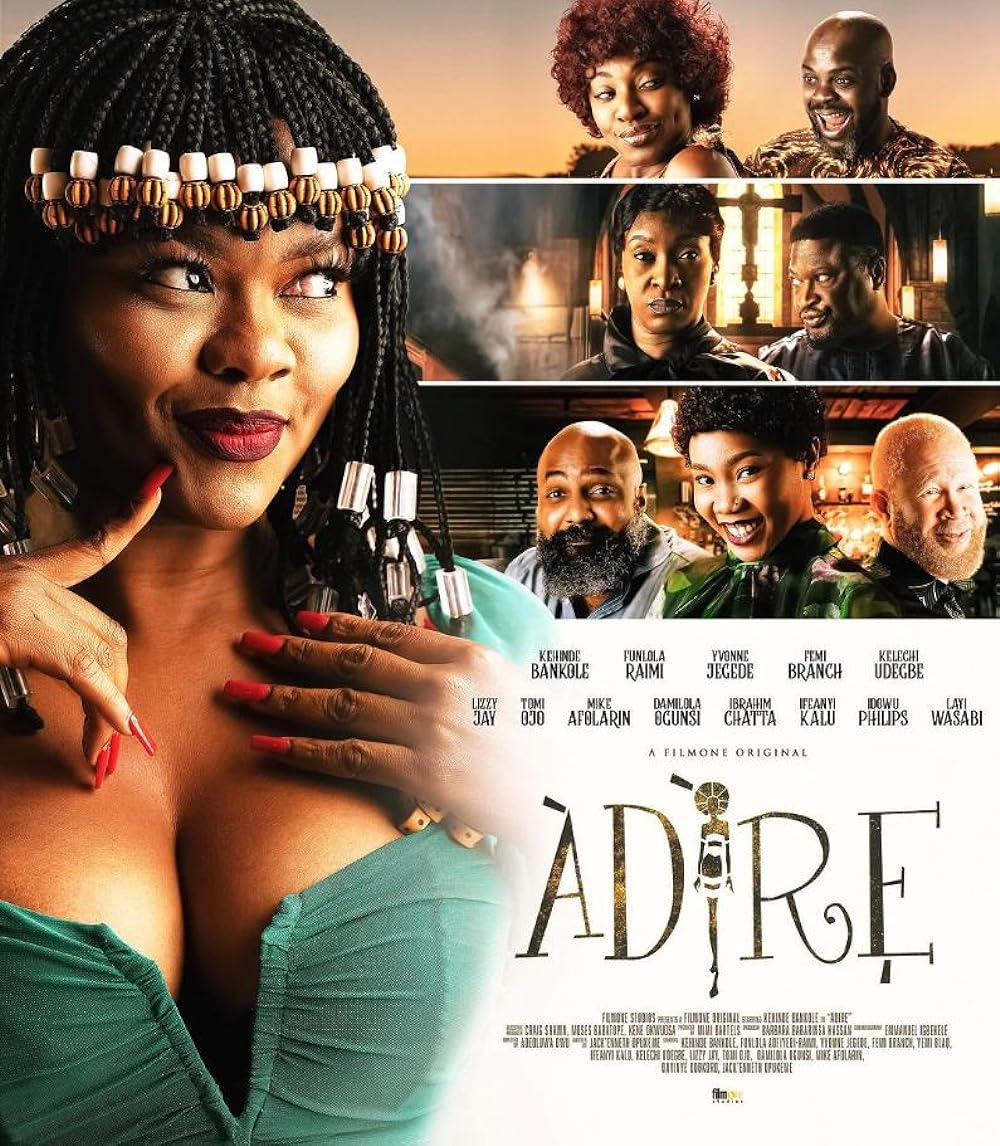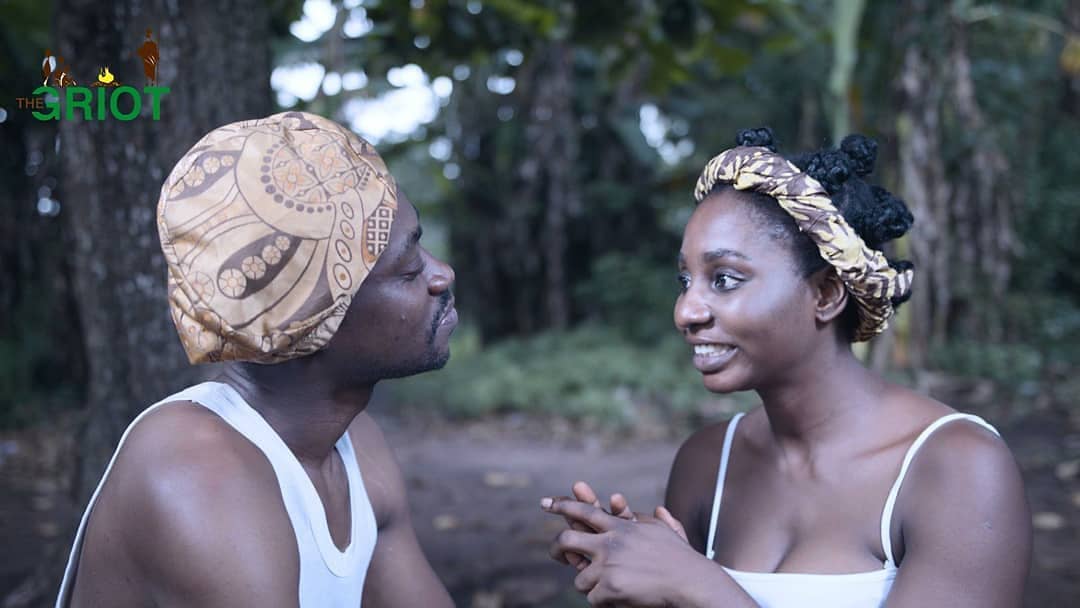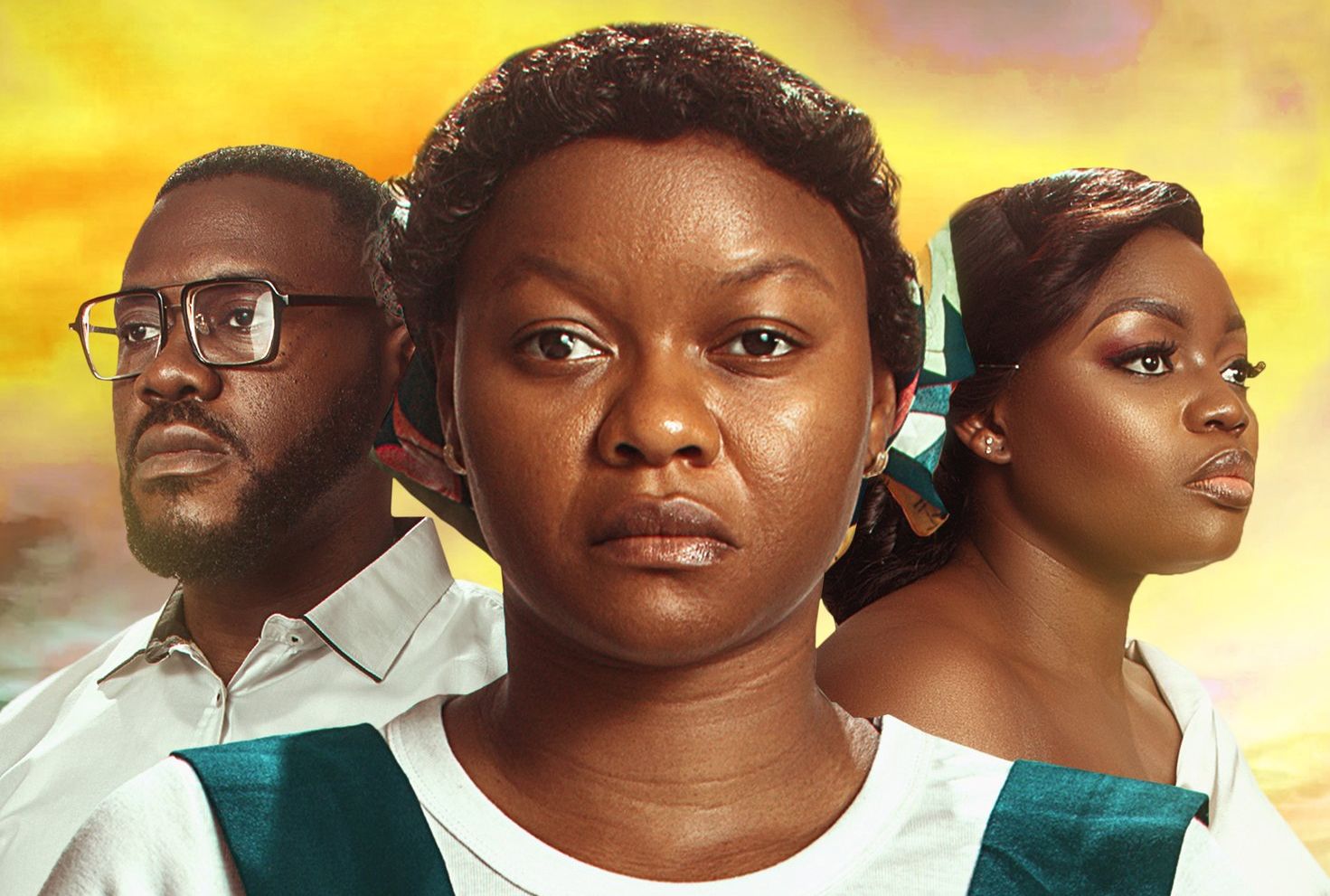Adeoluwa Owu’s Adire is FilmOne’s debut original. It is the first in their line-up for in-house originals. The all-purpose Nigerian film company has officially thrown its hat in the filmmaking mix of original productions. The director, Owu, responsible for The Griot (2021), has contributed to a line of films as director and cinematographer. In Adire, Owu and FilmOne grapple with the basic impulse of freedom and what it might mean to one who has never truly had it.

Adire (Kehinde Bankole) is a retired prostitute on the run from her pimp (Yemi Black). She wants to define what freedom might mean to her. She arrives in a conservative rural community and, expectedly, finds it hard to settle in. She constantly clashes with the Deaconess (Funlola Aofiyebi), who insistently sees life only through the nuance of religion and without the allowance of human flaws. In this community, she finds love and friendship, and she appears to want to keep it. Adire must now navigate what it means to live within a community while expressing her sultry femininity—she contributes to this community by making dyed lingerie for its women. As expected, complications arise from multiple ends when her past finds her and challenges Adire’s newfound peace.
Kehinde Bankole (Sista) does her best to embody the layers of complexity a character like this might demand. For a chunk of the film, she succeeds. The undisputed star of the show is the veteran Funlola Aofiyebi (The House of Secrets), who wreaks fire and brimstone into her character and the scenes she oversaw. When there was a demand for softness, and her character broke down, Funlola Aofiyebi depicted it masterfully. Femi Branch (Mide) stands out, as well as one or two minor characters (Yvonne Jegede’s character and Tomi Ojo’s are honourable mentions.) However, there was a general lack of nuance in the overall performances—the slapstick actors sure take the sheen off performances. The veterans brought their game, but many actors were largely decent, flaccid, or worse, resorted to slapstick performances.
A strong, minor character to commend is Tunde, played by Jack’enneth Opukeme, who also wrote the script. For the entire first half of the script, Tunde is quiet and passive, but towards the middle, momentum grows, and his importance to the story becomes obvious. The success of Tunde’s character is a testament to Jack’enneth’s ability to act quietly, with nuance. But this character’s success also shows the weakness of the script. If Tunde could succeed with so little, why did the script need such a long runtime.
However, the story respects structure and characterisation. It is conscious of what should go where and, to a degree, when. And this is a breath of fresh air to how we approach storytelling, especially the writing. There aren’t many Nollywood films that have this feel. There are scenes with impeccable dialogue exchanges, especially with Funlola Aoyebi and Femi Branch, who plays the soft-spoken parish leader opposite his fiery wife. But one would hope for humour outside slapstick, which the film lacked.
At the centre of the conflict is the Church and its moral allowances. The church is the centre of this community, and its influence ricochets throughout all the characters and their decisions. The usage here is to be commended. The church can be several things. The church can be a place of gathering and warmth, as Femi Branch’s character depicts, but it could also be a judgemental place that ostracizes perceived sinners, as Funlola’s character espouses. Either depiction has its strengths and flaws, and it is a measured mix of both that’d seem perfect. Adire tries to depict this at the end, but that message does not come across plainly because that third act had the avoidable baggage of Captain to carry. The character, it feels, had no proper justification beyond the inciting incident.
 ‘The Griot’ Review: An Enjoyable Storyteller’s Woes Boosted By the Acting Performances
‘The Griot’ Review: An Enjoyable Storyteller’s Woes Boosted By the Acting Performances
The film suffers greatly from its slow pacing. All three acts felt bloated, but the first was particularly long and unjustifiably so. The resolution, while efficient, leaves the viewer with several questions. There is a burnt corpse in Adire’s apartment, for example, and Tega (Ibrahim Chatta), the abusive druglord powerful enough to frighten Adire’s pimp, could return with questions for her about his merchandise. It felt like the film conveniently resolved without tightening certain loose ends. Perhaps avoiding Captain’s (Yemi Blaq) return to the community would have made for a tighter, corpse-less rom-com resolution.
With Captain, her pimp’s arrival, Adire must find a way to send him on his way while maintaining this new life. But for all her guile, she does not prove capable of accomplishing this. And even though it is clear she has made loyal friends, she does not enlist their help or her new community’s.
At the end of a film like this, one would also expect Adire to have a clear, moral decision: to either completely choose this life or leave it. It feels here as though circumstance made that choice for Adire. She was packing her bags to run away, after all, so she didn’t choose this life. And that is a serious problem. The character shows she favours this life, but when she had to choose between losing her life within the parameters of this rural community where she has found true friendship and peace or leaving it behind to run away, she chose to run. And she didn’t choose to run to protect the community members. So, what life would be perfect for Adire that she would be willing to die for? The question hangs.
Her love interest, Thomas (Ifeanyi Kalu), is a passive character who accepts Adire under questionable circumstances. The film needed a scene to resolve their third-act conflict and not imply that this happened off-screen. On the other hand, Folashade and Tunde (Jack’enneth Opukeme) are two side characters that have excellent arcs. I believe this is the curious case of Adire, a film that has so many good points but does not maximise them.
If you can overlook the flaws, you realise Adire is a decent dramedy, an occasionally funny film about an ex-prostitute who, against all odds, finds true love and a community. The tragedy, as with almost all ‘good’ contemporary Nollywood films, is that it could have been great. This film needed to be much shorter.
Adire premiered on November 3, 2023, in cinemas.
Join the conversation in the comments section or on Twitter.
Sign Up: Keep track of upcoming films and TV shows on your Google calendar.
Side Musings
- Jack’enneth Opukeme’s Tunde is a well-written, well-depicted character. No surprises since the actor wrote the film.
- Why have the filmmakers written Oyo town even though they shot the film in Ibadan and UI?
- Tomi Ojo does very well with her character, Simi.
- What was the point of declaring Adire’s house haunted when it played no real purpose in the story?
- And finally, perhaps someone running away from a powerful Lagos pimp with long-reaching connections would run much farther than Oyo.
- Layi Wasabi essentially played Layi Wasabi. Pointless fluff of a character.





Such a beautiful review here